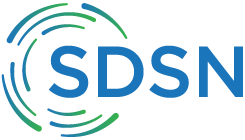Rationale and definition:
This indicator measures whether resource-based rights and registry of rights holders between governments and business, including contracts and licenses relating to extractive resource exploration and production, as well as agriculture and forestry operations, are published in a timely manner. Disclosure of rights and rights holders is an essential precondition to ensuring that all parties benefit from large-scale resource investments. Secrecy can be a convenient way to hide power imbalances, incompetence, mismanagement, and corruption. Disclosure is also a necessary precursor for the coordinated and effective management of the sector by government agencies. It also allows citizens to monitor rights in areas such as environmental compliance and the fulfillment of social commitments. Contract and rights transparency also provides incentives: government officials can be deterred from seeking their own interests over the population’s and, over time, governments can also increase their bargaining power by gauging contracts from around the world.1
This indicator measures whether resource-based rights between governments and business, including those related to extractive resource exploration and production as well as agriculture and forestry operations, are publicly published in a timely, free, and open manner. Based on the rating system of the proposed IMF Pillar IV on Resource Revenue transparency and to be included in the updated Resource Governance Index, the indicator would be constructed so that a government can receive one of four ratings:
- 100: The government maintains and publishes free and online an up-to-date register of all natural resource rights holders, the full texts of terms and conditions associated with their natural resource rights, and the beneficial owners of those rights.
- 67: The government maintains and publishes free and online an up-to-date register of all natural resource rights holders and the full text of terms and conditions associated with their natural resource rights.
- 33: The government maintains and publishes an up to-date register of all natural resource rights holdings. The government maintains and publishes an up-to-date register of all natural resource rights holders and their holdings.
- 0: No. Rights, a register of rights and rights holders are not published.
Disaggregation:
This indicator can be disaggregated by industries and commodities.
Comments and limitations:
We propose that available indicators for the extractives industries be expanded to also include large-scale investments in agriculture, forestry, fishing concessions, and other  large natural resources contracts.
Preliminary assessment of current data availability by Friends of the Chair:
C
Primary data source:
Administrative data, international monitoring.
Potential lead agency or agencies:
IMF, NRGI, UN Global Compact, EITI, and/or UNCTAD.
Collier, P and Antonio, P et al (2013). Harnessing Natural Resources for Sustainable Development: Challenges and Solutions. Paris, France and New York, USA: SDSN.

